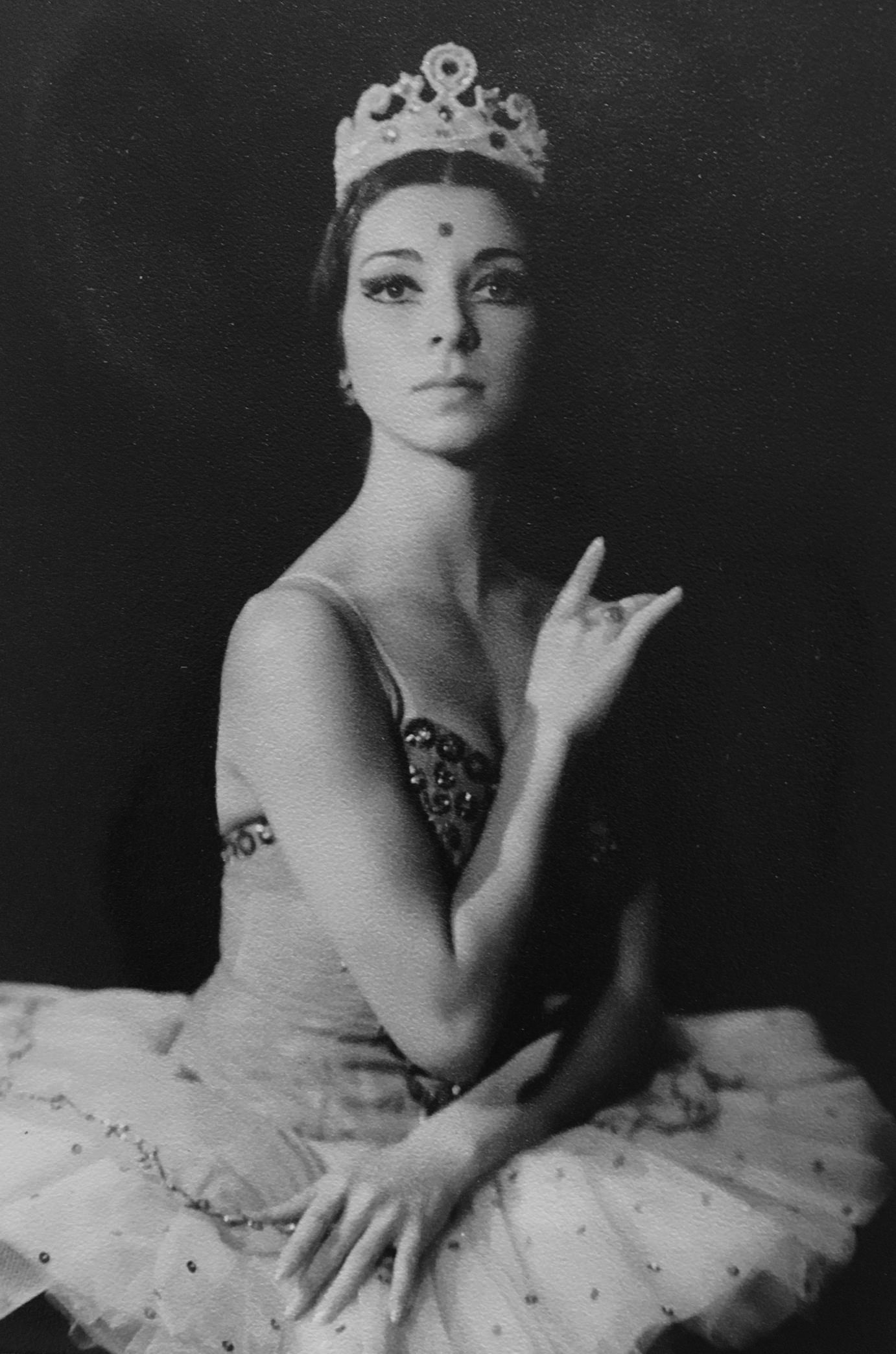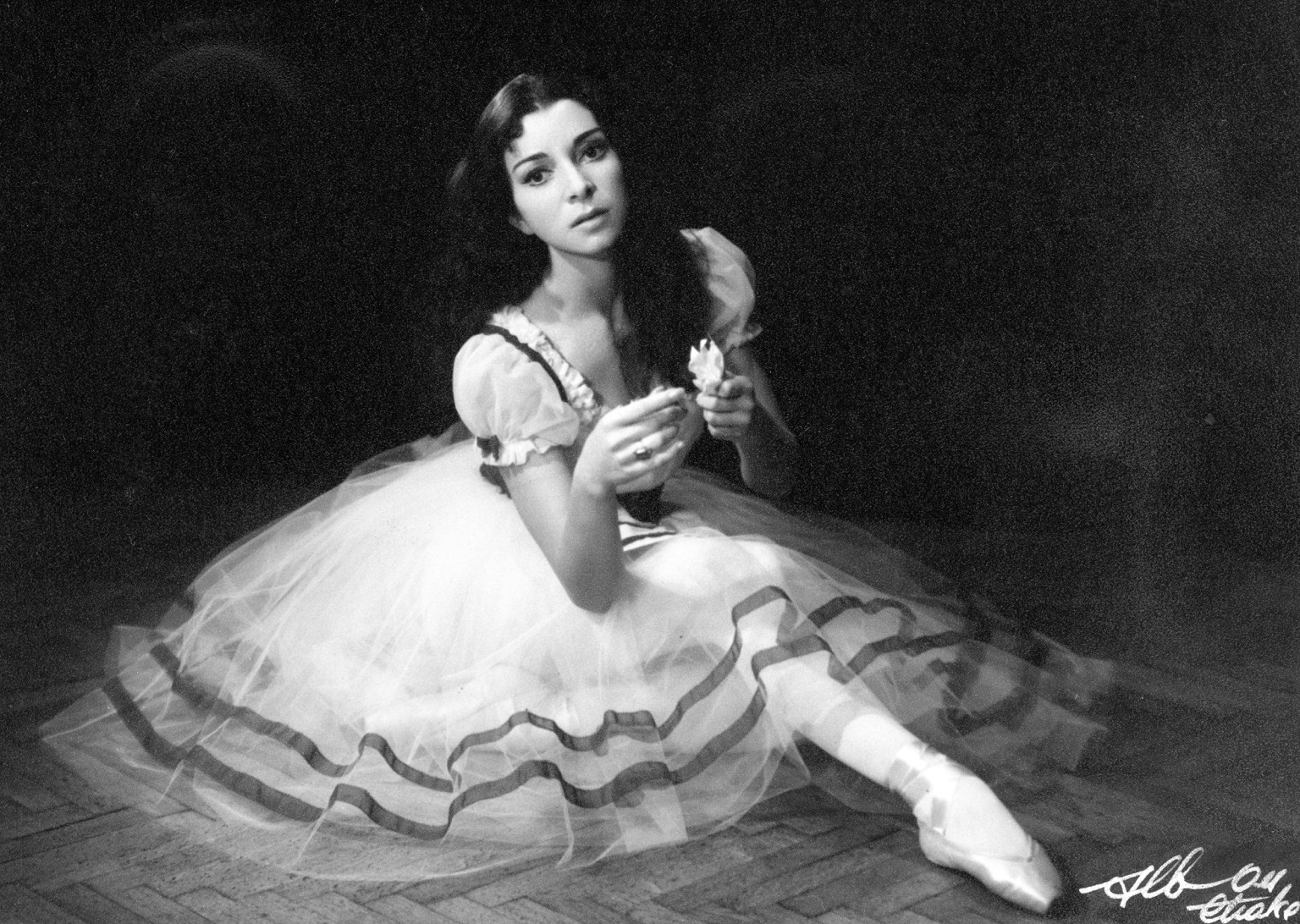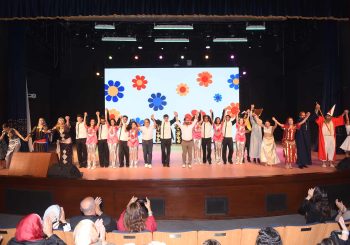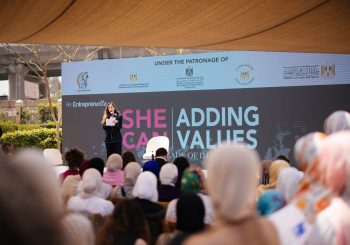The year was 2018. I still remember the exact moment I was about to talk to Egypt’s legendary ballerina. They say that the most powerful way to remember someone is how they made you feel, and although I met so many people and spoke to several in that year alone, I can only remember how I felt on that particular day when I spoke to Egypt’s first prima ballerina: Magda Saleh.
So many phone calls, emails, and texts drifted with time and have escaped my memory, and my mind no longer tries to chase time and remember them all. But with Magda Saleh, my mind immediately holds me by the hand and takes me back to that exact scene, as though it had always been wanting me to recall that specific event.
Sometimes our minds know far more than we do, tucking away memories we do not yet realize we will need later on. They hold onto moments that, at the time, may not seem all that significant, moments we never would have guessed would stay with us. But somehow, as if our minds already sense the turns that life will take, they bring these memories back just when we need them most. Whether it is to comfort us, guide us, or help us see something more clearly, our minds seem to know exactly when it is time to remember.
While some people leave their legacy through the many achievements they’ve collected and the ways those milestones have been documented, there are others whose legacies are far quieter, yet somehow louder in our hearts. It is because they knew how to make us feel something that so many others did not. And on the second anniversary of her passing, Magda Saleh’s legacy, for me, was in the way she remained so humble, kind, and encouraging to young writers like myself, and to so many other journalists in Egypt, especially at a time when writing and journalism was so often overlooked.
What also stayed with me most was how deeply she still cared for Egypt, even though she no longer held any official position in Egypt, having left her role as the founding director of the New Cairo Opera House in 1992. Her passion never faded, and her sense of responsibility towards her home country never left her.
As I begin to recall the moment I first spoke to Magda Saleh, my mind takes me back to sitting anxiously in my bedroom, waiting for her to answer me over Facebook Messenger. It was around 6 am in New York for her, where she was based at the time, and yet she showed no hesitation at all; she was more than willing, even eager, to take the call at such an early hour.
I had just come back from a long, stressful day at university. I was in my final year, completely overwhelmed with deadlines, trying to hold together a thesis that already felt like it was falling apart. My mind was racing with stress, and honestly, I was not feeling too hopeful about the interview. I did not think someone as iconic as her would take me — a 20-year-old student — seriously. I thought maybe she would hear my first question, politely end the call, and I would sink right back into my university stress.
But what happened could not have been further from that. The moment we began speaking, I was met with a warmth I did not expect. What struck me first was how genuinely excited she was to be doing the interview, and her voice carried a kind of lightness and sincerity that instantly calmed me.
I found myself wondering, how could someone with such a legendary career still get this excited to speak to someone like me? Then I realized it was because she was not doing it out of obligation; she genuinely loved the art of conversation, the exchange of ideas, and the act of passing on a legacy not just through facts, but through human stories. Her story. Egypt’s story. Dance’s story. And her deep love for all three.
Even though we were speaking through a screen, it did not feel like that. It felt like we were sitting together, having coffee. She spoke slowly and thoughtfully, pausing often to reflect, then suddenly lighting up when something new came to mind. It felt, at times, like the interview was also helping her reconnect with her own love for dance, as if speaking her story out loud was letting her rediscover pieces of herself.
I remember her reflecting on how different the landscape of dance was during her time. Egypt was in the midst of a cultural awakening, still finding its footing after years of colonial rule, and the idea of pursuing a career in dance felt nearly impossible. Like many newly independent nations, Egypt was trying to rebuild its identity, its institutions, and its values without relying on foreign influence. Yet, by some extraordinary alignment of timing and circumstance, her career began to take shape.
She told me how it was not solely her determination that brought it to life, but the support of forces beyond her control. She credited her parents, and most of all, Tharwat Okasha — the then Minister of Culture — who had the vision to create an Academy of Arts, including the founding of the Higher Institute of Ballet in 1959.

The way she spoke about Okasha was unlike anything I’d heard. She mentioned him more than she did her own achievements, speaking with a kind of reverence that said everything about the values she carried. Because to her, success was not something built in isolation, it was the product of home, community, and the vision of a country that believed in culture.
In her words, she called him one of “Egypt’s great sons,” a man who cast a “long shadow” that still shapes the country today. That phrase has stayed with me ever since, because it is rare to hear someone speak with such depth and clarity about building a homeland, about shaping identity not just through personal success, but by contributing to something bigger.
She took me back to a time when achievements felt like part of a country’s bloodstream, when what you did was not only for yourself, but for the story of the nation you belonged to.
At the time, all the dancers at Egypt’s ballet company were Egyptian, a fact she felt deeply proud of, and also something she believed should still be the case today. I remember her telling me how much she wished there were more local dancers on the stage again, especially as the country began hiring foreign performers instead.
Over the years, she had watched Egypt’s cultural scene face countless setbacks, closed doors, and growing gaps. Despite all of that, she never stopped speaking about dance with the same love and urgency. She often described dance as Egypt’s soul, and to her, there was an ongoing struggle between two forces, each pulling at that very soul.
Hearing her speak that way, even after decades had passed since she left her role as director of the New Cairo Opera House, reminded me just how much dance, Egypt, and her own being were tightly bound together. They were not separate entities in her eyes; they were one and the same.
It did not matter that she was no longer living in Egypt, or that she held no official position, or that she had nothing to promote. She was not speaking to make headlines or draw attention. She spoke because she cared. Because her concern, above all else, was for Egypt’s soul. And somehow, even across time zones and through a screen, she made me, a young writer, feel the weight and beauty of that truth.
Just before the end of our call, she shared a quote with me that was once said by the Egyptian-American composer Halim El Dabh, one that could not have summed up everything she had just shared more perfectly. She said, “If you scratch an Egyptian, you will find an ancient Egyptian.”
It was her way of saying that beneath all the layers of change and history, there is still a deep, unshakable core that connects us to where we come from. That no matter how much time has passed, an essential legacy still remains.
I ended the call feeling an even deeper respect and admiration for her, not only because of her accomplishments, but because of the respect she gave so generously. She gave it to young writers like me, by sharing her story with such grace and clarity. And more importantly, she gave it to Egypt—its history, its soul, and everything far greater than herself.
A couple of months later, I was surprised to hear from her again, inviting me to meet for lunch during her visit to Egypt. She had also reached out to several other journalists, and we all found ourselves gathered around one table, talking and laughing with her as if we had known her for years, even though each of us had only interviewed her once. The way she remained so humble, kind, and respectful toward writers and journalists stayed with me.
I’m writing this ode to her years later, reflecting on just how deeply she impacted me, not just through her work or her story, but through the way she made me feel.
At a time in my life when I felt fragile and overwhelmed, she made me feel seen and respected. And she reminded me that writing, in its truest form, is like laying the bricks of a nation, recording moments, people, and histories that might otherwise be forgotten.
I carry that with me still. I hope we continue to see more artists and pioneers like her, those who serve Egypt with love, grace, and a sense of purpose far beyond themselves.
The opinions and ideas expressed in this article are the author’s. To submit an opinion article, please email [email protected].







Comments (0)